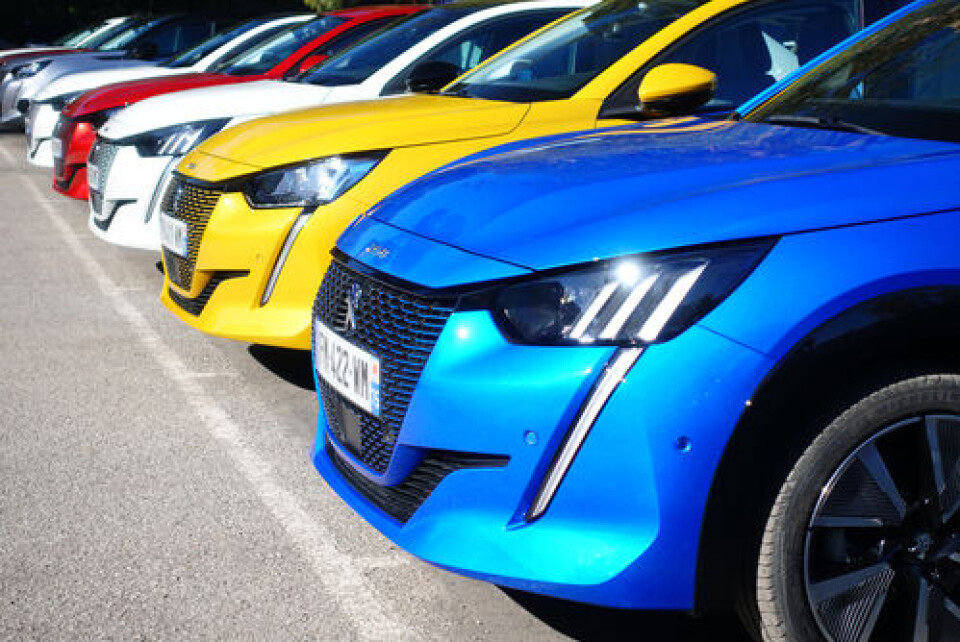-
Map: Car insurance costs rise in France - see the average in your region
Multiple studies show that costs are rising by around 5% year-on-year, with major differences by region and vehicle model
-
Tips to save money when hiring a car in France
From comparing deals to private swaps, and checking for extra costs and insurance, here is how
-
Car fuel prices are rising in France: This is why - but will it continue?
Prices of diesel and petrol have been rising since last year
More drivers in France opt to lease a car than buy a new one
For the first time ever, lease hire has overtaken sales

Hire rather than buy is the new trend in France when it comes to new cars. For the first time ever, lease hire has overtaken car sales.
Leasing with the option to buy (LOA) and long-term leasing (LLD) represented 52.4% of registrations in 2022. And this figure is much higher for some premium and non-premium brands. This compares with only 30% in 2018.
The data comes from the Vehicle Registration System (SIV) reprocessed by NGC Data, which represents banks and car insurance companies.
Inflation hits the car industry
With roaring inflation also hitting the automotive sector, leasing appears to be a good option especially as the acquisition model for contracts has been simplified.
Choosing the lease option is now a more attractive monthly repayment prospect than an individual loan, it seems.
This is because the lease funds only the expected depreciation of a vehicle (plus maintenance and finance charges) to its point (date) of return to the dealership. Whereas to buy the vehicle outright would require much higher monthly payments if bought via finance.
Driving a leased vehicle may also reduce maintenance expenses and avoid suffering vehicle devaluation as the vehicle can be returned for a set price at the end of the lease contract, irrespective of the then market conditions.
After one year of on the road, a vehicle can lose up to 30% of its value and 50% after three years, while remaining in good condition, says the site transfertleasing.fr.
Leasing auto https://t.co/nxQfsl4s8q Visualised with @f_l_o_u_r_i_s_h
— mark (@mark68089179) February 17, 2023
According to NCG-Data's analysis, leasing is of interest to both individuals and dealerships alike in the car industry.
This increased popularity can be explained by several factors, including the increase in the price of new cars and a newly simplified purchasing format that includes services as part of the monthly payment. It seems this is proving a winning formula for the private buyer.
For some time now brands such as Renault, Peugeot, Toyota and Skoda have been offering leases and now they have been joined by more premium brands such as Mercedes, Porsche, Jaguar, Tesla and Alpine. All models and all ranges are now increasingly offered under leasing, states NGC-Data.
Read also: Renting an electric car in France: where, how and how much?
Brand leaders
The leading brands in leasing numbers are Mini, Seat and BMW. 68.2% of the Mini cars put on the road last year were leased, compared to 63.5% of BMWs, owner of Mini.
Other brands leading the leasing race are Seat (67.2%) and its sport brand Cupra (59.6%). The latter is ‘sold’ mainly via leasing, because it is preferred by private buyers. In total, 18 brands including Audi, Lexus, Smart or Land Rover, now sell at least half of their models through leasing.
Beware of possible penalties
By leasing, the user limits risk-taking, the acquisition and maintenance expenses being set in advance. In addition, they no longer suffer a potential loss in value of their purchase when it is sold to buy a new car as the vehicle can simply be returned to the dealership on lease expiry. It is also possible to reduce monthly payments by opting for a longer contract or by leasing a used car.
A principal constraint of leasing is that the car must be returned in an "acceptable" condition after the leasing period. Even if the driver is only a “tenant,” it is their responsibility to take good care of the car to avoid being penalised at the end of the contract.
Despite this, the leasing trend has been growing for years. In 2010, cash or credit purchases accounted for 92% of sales to individuals. This rate dropped to 79% in 2015, to 59% in 2020 and to 48% in 2022.
Related articles
French door-to-door car hire firm looks to all-electric future
Could you save money in France by renting children’s toys?
























